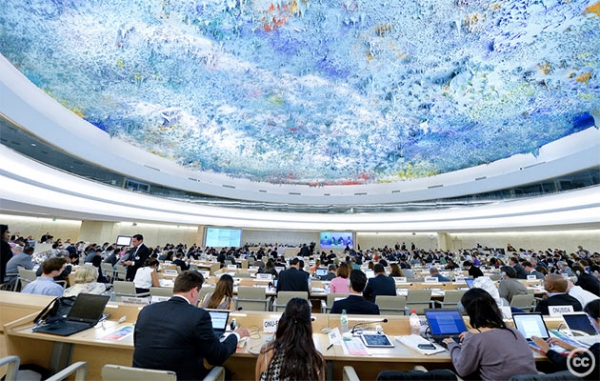On the road to COP 21 in Paris: UN Climate talks in Geneva

Two months after the 20th session of the Conference of the Parties (COP 20) of the UN Framework Convention on Climate Change (UNFCCC) took place in Lima, Peru, the UN Climate Change Conference in Geneva was held from 8-13 February. A climate change conference will also be held this year in Bonn, Germany from 1-11 June, with the aim to continue progress toward achieving an ambitious climate change agreement at COP 21, taking place from 30 November to 11 December in Paris, France.
COP 20 in Lima resulted in the 43-page Lima Call for Climate Action – which captured governments’ visions for how to respond to a climate changed and changing world – into a more workable document that sets the stage for reaching the target of limiting the rise in global temperatures to 2-degrees Celsius above pre-industrial times.
2014 was the hottest year in recorded history. From the Arctic to the Marshall Islands, from San Francisco to São Paulo and beyond, communities have experienced first hand climate impacts. With rising sea levels, acidification of the oceans and severe droughts, along with threats to global security and increasing migration flows, the issue is pressing. Taking the high toll of climate impacts into account, the Peruvian Environment Minister and COP 20 President Manuel Pulgar-Vidal urged nations to work together: “This is not a competition among us. This is one team for one planet,” he appealed.
In order to achieve a meaningful global climate deal, civil society organizations encouraged negotiators enable the transition from fossil fuels to 100% clean renewables. A group of influential business leaders – including Unilever chief Paul Polman, Virgin Group CEO Richard Branson and Indian businessman Ratan Tata – are calling for a worldwide commitment to “net zero” greenhouse gas emissions by 2050.
While momentum for a phase-out of fossil fuels grows, the economic case for climate action needs to be strengthened and climate change resilience fostered. Whereas these and other climate-related issues regularly feature in global conferences, including the recent World Economic Forum in Davos, national ownership must underpin any universal global agreement. In preparation for COP 21, governments are due to submit their own national commitments to climate action (so-called Intended Nationally Determined Contributions / INDCs) by 31 March. China, the United States and the European Union – the top three emitters of greenhouse gases – have already outlined their plans. Once the national plans of all countries are received, the United Nations will compile them into one document in preparation for COP 21 – toward achieving a fair, ambitious and binding climate change agreement in 2015.
Resources
- More information, visit the United Nations Framework Convention for Climate Change (UNFCCC) newsroom.
- See also the COP 21 host country website.
- Access the International Institute for Sustainable Development (IISD) daily summaries and photos of the Geneva Climate Change Conference here: http://www.iisd.ca/climate/adp/adp2-8/
- See more at: http://unngls.org/index.php/publications/the-2015-post-e-mag/1580-on-the-road-to-cop-21-in-paris-un-climate-talks-in-geneva#sthash.oNRZFbBt.dpuf

Facebook comments